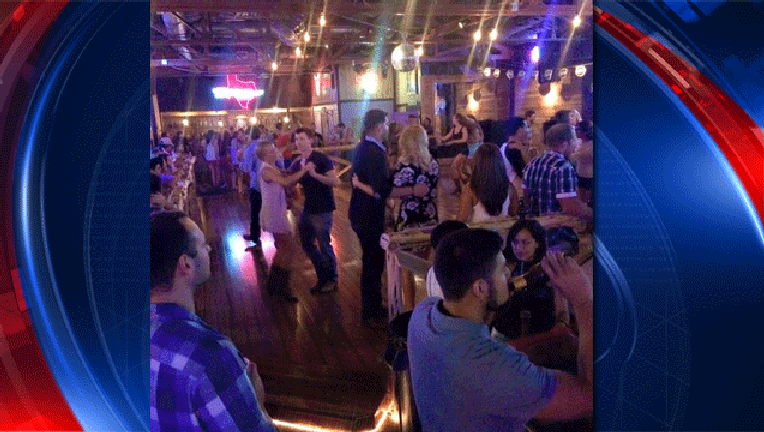Barn dances bring joy and relief to veterans with PTSD

(RaeAnn Christensen)
LOUISVILLE, Ky. (AP) — Nothing puts a smile on Roosevelt Smith's face quite like dancing. It helps him forget, for a while, the post-traumatic stress disorder he's had since the Gulf War.
Smith is one of a few dozen veterans with PTSD or traumatic brain injuries who fight depression and anxiety with a group dancing class that gathers at an AmVets post in Louisville, Kentucky.
"It's a way of calming yourself, an outlet so to speak," Smith said as a fiddler and a piano player warmed up behind him. "We have a lot of things that we do as far as prescription drugs, but this right here is the best prescription I've had, (with) no side effects."
The Veterans Administration says between 10 and 20 percent of war veterans going back to the Vietnam era are living with PTSD.
The idea for dancing-as-therapy grew out of a talk Deborah Denenfeld had with a psychiatrist at Fort Knox about a dancing program for active duty military back in 2011. Denenfeld determined that the barn-style dances were best for military members, and she eventually developed the "Dancing Well" program for veterans with PTSD beginning in 2013.
"This traditional dance, you might think of it as barn dance that's been tested by hundreds of years of communities dancing it, is so simple and pure it's a natural for this population," said Denenfeld, who leads the sessions.
The environment is built for maximum comfort. Lights are kept low for dancers with traumatic brain injuries, and the music stays cheery, with no jarring percussion. The location is not advertised, providing anxious visitors with a sense of security and privacy. The groups are kept small and the dances are typically organized into 10 weekly sessions.
There is no shame in this space, where men and women young and old join hands and glide through a series of barn-style dances.
About 25 dancers met this November as Denenfeld guided them through their moves, keeping up a constant pep talk through a wireless microphone.
Darlene Messler, an Army veteran, was sidelined by a foot injury, but came anyway, just to watch with her crutches alongside her.
"It takes me back to my childhood, in grade school, doing square-dancing," Messler said. She suffers from PTSD due to sexual trauma during her time in the military in the 1970s, but "when I'm here, I don't have to worry about that. I just have fun, we're all just here as a family and just having fun."
Denenfeld said she knows of only one other comparable program, the San Diego-based Soldiers Who Salsa, which offers classes in Southern California and a few other states. She hopes the idea will spread, and is working to train volunteers to run their own classes. A major roadblock, she says, is her need for private donations to cover the cost of liability insurance.

